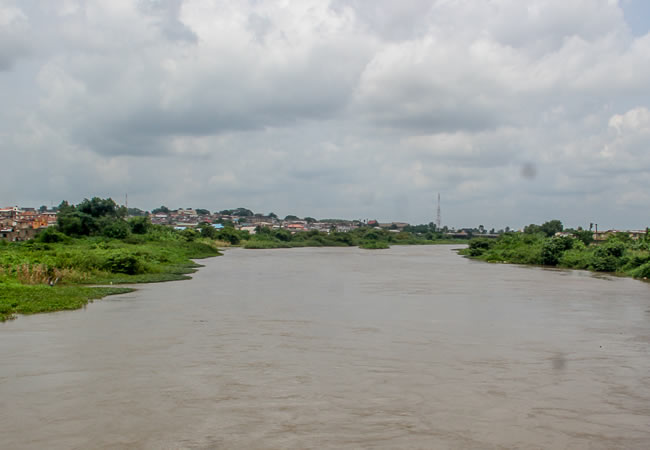In response to this year’s predicted flooding, professionals have advised the government to adopt measures to avert disasters.
The National Chairman of the Nigerian Institution of Environmental Engineers, Sesan Odukoya, urged the Federal Government to protect shorelines, dredge River Niger and Benue and construct some dams on the corridor, build protection barriers and drains, among others to prevent a repeat of the flood disasters that ravaged many parts of the country last year.
He encouraged the FG to implement recommendations submitted by experts and appealed to states to adopt measures that would support efforts to safeguard lives and property.
In 2022, severe flooding led to the loss of 662 lives and the destruction of property worth billions of naira.
Nigeria Meteorological Agency had predicted an early start of rainfall this year, which may cause flooding in many parts of the country.
Odukoya stated that early measures were important in view of the Nigerian Meteorological Agency’s predictions of heavy rainfall for 2023.
He said, “The Federal and State Governments should limit infrastructure provision along flood plains, to discourage people from purchasing land and settling in such areas. Also, both the Federal and State Governments should take action to discourage people from building on flood plains and use engineering solutions to avert flooding in areas already built up.
“The government could construct barrier walls to re-channel water from built-up areas along flood plains through large drains to the larger water bodies. The Federal Government should go back and implement those reports that we submitted to them because there are supposed to be some dams along the River Niger and River Benue’s corridor.”
In the same vein, an environmentalist, Michael Semire, called the government to embark on said early warning publicity.
He said, “The Minister of Environment noted that it is caused by the tributaries that flow into the major Benue River, not essentially because of the overflow of water from the Lagdo Dam in Cameroon as people posited. Hence, it is advisable that they dredge the Benue River to be able to make the river flow better because when it does not flow well, it overflows its banks and flows into surrounding communities.
“So, they should resolve it from the tributaries area. And if possible, build mini-dams to be able to control the water that flows into Benue River, because as it flows it then joins River Niger coming from West Africa, merges and becomes flooded and disastrous. In addition, a functional drainage system should be created, which can be located underground, from where it is turned into an ocean, as done in the United States.”
The environmentalist called for the construction of embankments that would serve as a means of flood control.
He also emphasised the significance of reducing carbon emissions that trigger climate disasters in the long run.
Meanwhile, the Federal Capital Territory Emergency Management Agency decried the threat posed by flood in the Federal Capital Territory, which was expected to increase from the global impact of climate change.
The Director-General of FEMA, Dr Abbas Idriss, noted this during the 2023 joint tour of flood-prone areas of Apo-Dutse, Gudu Districts of the FCT.
Idriss noted that the tour was a preparedness and awareness measure for the 2023 rainy season, adding that the importance of the exercise could not be overemphasised.
He said, “Flood remains the greatest threat to lives and property, including food security, where farmlands were washed away. My conviction on our ability to keep lives and property safe from the threat of flood stems from the commitment and support given by the FCT Minister, Muhammad Bello.
“This has seen many structures standing on waterways and flood plains being demolished, to restore the FCT Master Plan, which has suffered gross violations over the years.
I believe the architects of the Abuja Master Plan envisaged the global threats that weather and climatic elements pose to cities, and took that into consideration in their design to make the FCT qualify as a safe city over time.”
Also, the Lagos State Government through the Commissioner for the Environment and Water Resources, Tunji Bello, recently warned residents to prepare for above-normal rainfall, which will start in the first week of April and cease in December.
According to the commissioner, the 1,936.2mm amount of rainfall predicted for 2023 was greater than the long-term average of 1,721.48mm experienced in the state in the last 10 years.
Bello said, “It is also expected that the recent increase in the frequency of extreme weather events will continue in 2023, with days of extremely-high rainfall amounts that may result in flooding, largely because strong winds are expected during the onset and cessation of each rainfall.”

































